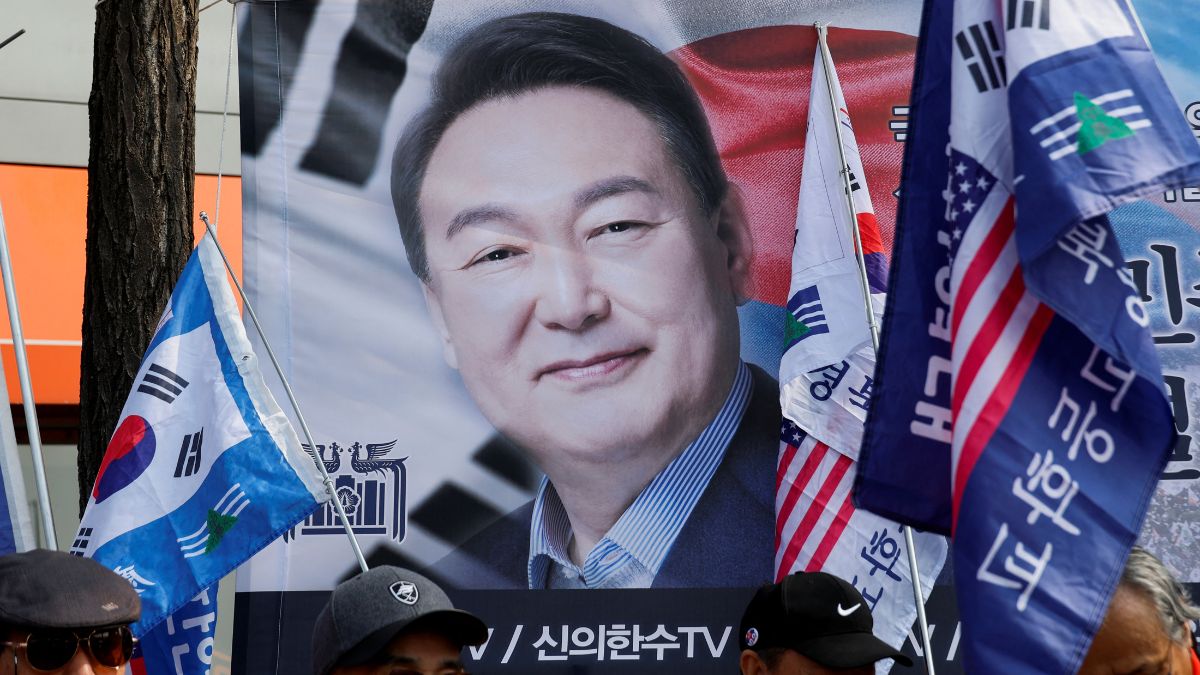South Korea’s Constitutional Court unanimously voted on Friday to dismiss President Yoon Suk Yeol from office , marking the nation’s most severe political crisis in decades.
The court’s decision upholds the National Assembly’s impeachment motion from December, triggered by Yoon’s unprecedented declaration of martial law.
With this ruling, South Korea is now heading toward a snap presidential election that must be held within 60 days.
Why was Yoon impeached?
The political crisis began on December 3, when Yoon declared martial law and deployed troops to the National Assembly . Lawmakers defied the heavy military presence to enter parliament and voted unanimously to lift martial law within hours.
Days later, on December 14, the opposition-controlled legislature formally impeached him.
The Constitutional Court rejected Yoon’s defence that his actions were a justified warning against the opposition’s misuse of legislative power.
Instead, Acting Chief Justice Moon Hyung-bae stated Yoon’s actions represented “a serious challenge to democracy”, and said he “committed a grave betrayal of the people’s trust who are the sovereign members of the democratic republic.”
The court stated that the president lacks constitutional authority to suspend the legislature, even under martial law.
According to the court, Yoon “mobilised military and police forces to obstruct the exercise of legislative authority,” thereby violating the constitution and his presidential oath.
What happens next?
With the court’s ruling, Prime Minister Han Duck-soo will continue as acting president until a new leader is elected and inaugurated.
The National Election Commission now has 60 days to organise a nationwide vote, making it one of the most intense and divisive elections since South Korea’s democratic transition in the 1980s.
Finance Minister Choi Sang-mok is expected to convene an emergency meeting with the Bank of Korea governor and financial regulators to ensure economic stability.
The last time South Korea went through such a transition was in 2017, following the impeachment of President Park Geun-hye.
Then, a snap election was held within two months, and a new president took office the day after the results were announced.
What does this mean for Yoon?
Yoon is now facing a criminal trial for rebellion, a charge that carries a potential sentence of life imprisonment or even death, though no one has been executed in South Korea in decades.
The 64-year-old former prosecutor had been arrested in January but was released in March after the court revoked his arrest warrant.
Despite the legal proceedings, Yoon appears far from retreating from public life. He is expected to rally his conservative base, attempt to influence the People Power Party’s leadership race, and possibly support a loyalist candidate in the upcoming election.
His goal may be to help elect a conservative successor who could pardon him if convicted.
Who may be the next South Korean president?
The upcoming election is expected to be highly polarised, with the two most prominent figures both facing legal troubles.
Lee Jae-myung, leader of the Democratic Party, who narrowly lost to Yoon in 2022, is currently the frontrunner in most opinion polls.
Lee was one of the lawmakers who helped overturn Yoon’s martial law decree in December. However, he too faces multiple court cases, including bribery and allegations tied to a $1-billion property development scandal.
Other potential contenders include:
Han Dong-hoon, the former People Power Party leader who opposed Yoon’s martial law order and is popular among moderate conservatives.
Kim Moon-soo, the current labour minister, who has criticised Yoon’s impeachment but is not expected to run.
Oh Se-hoon, the mayor of Seoul and a conservative advocate for South Korean nuclear armament.
Hong Joon-pyo, mayor of Daegu and a five-term lawmaker preparing for a potential presidential bid.
Kim Dong-yeon, Gyeonggi Province’s governor, aligned with the opposition and a vocal supporter of strong US-Korea ties.
Regardless of who wins, the next president will face major challenges — from mending domestic divisions and navigating a shaky economy to handling escalating tensions with North Korea, China’s diplomatic assertiveness and US President Donald Trump’s foreign policy shifts.
Will this end the crisis?
Experts are warning that Yoon’s removal may not immediately stabilise the country. His core supporters remain active, with past protests turning violent.
Some experts, such as Kim Tae-hyung of Soongsil University, told AP that the deepening distrust in democratic institutions could spiral: “If people start refusing to accept any election outcome that is unfavourable to them, the other side will start doing the same… trust in democracy will completely collapse.”
Still, Professor Leif-Eric Easley of Ewha University sees the court’s ruling as a step toward clarity, telling Reuters, “The Constitutional Court’s unanimous ruling has removed a major source of uncertainty. And not a moment too soon, given how the next administration in Seoul must navigate North Korea’s military threats, China’s diplomatic pressure, and Trump’s trade tariffs.”
With inputs from agencies


)

)
)
)
)
)
)
)
)



